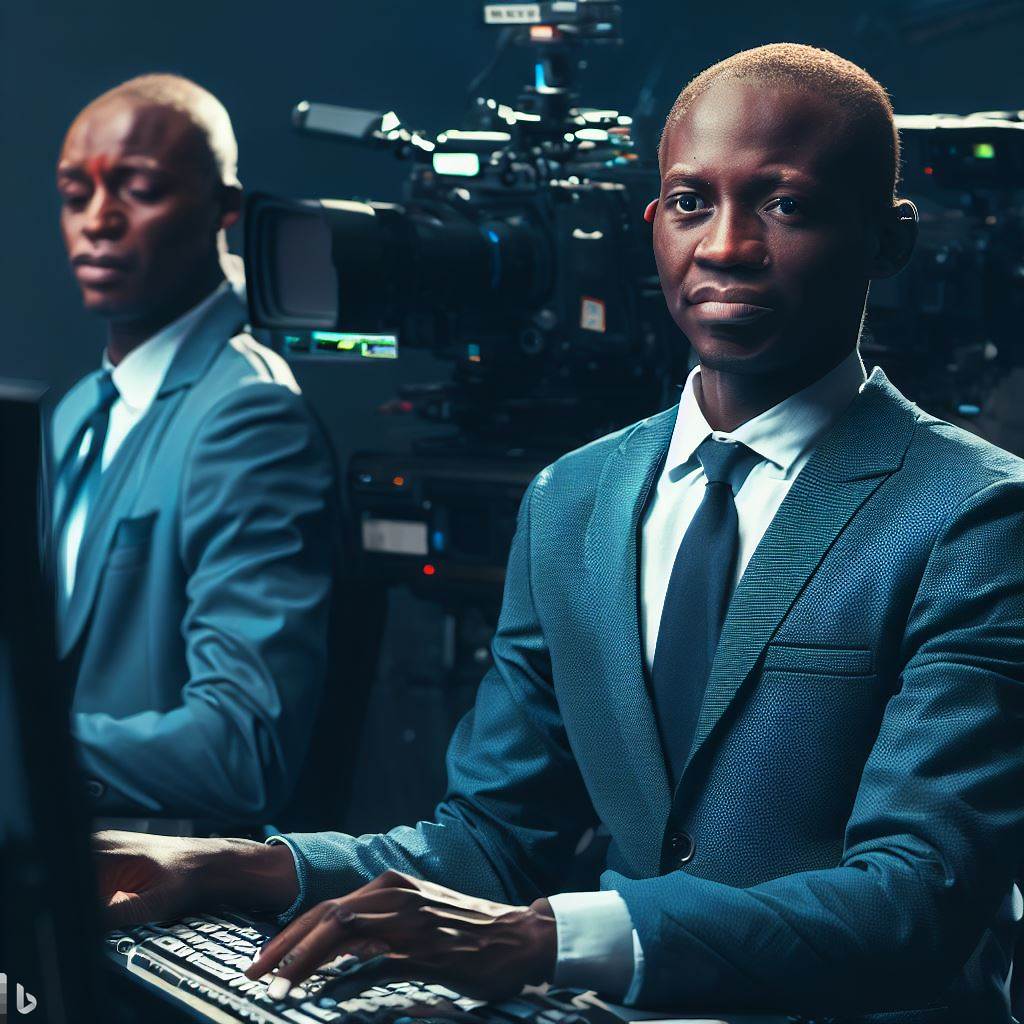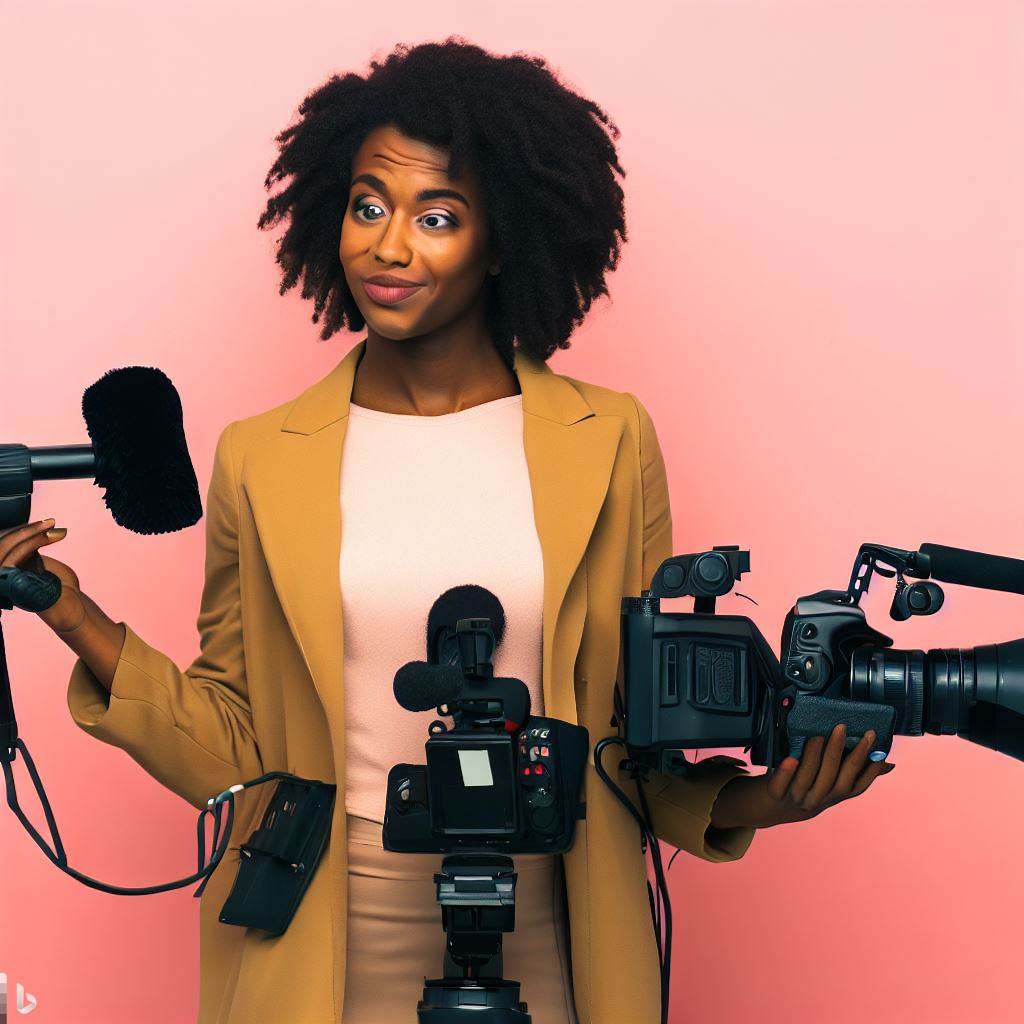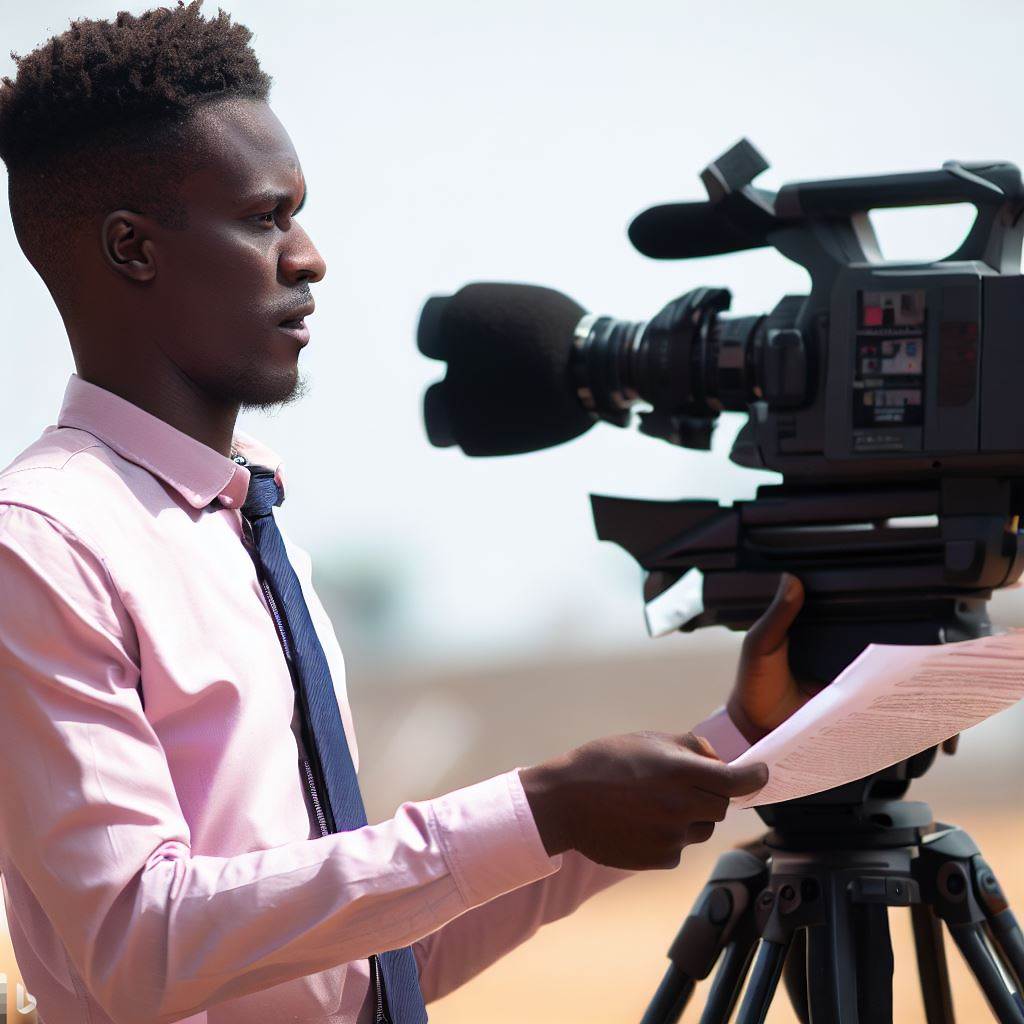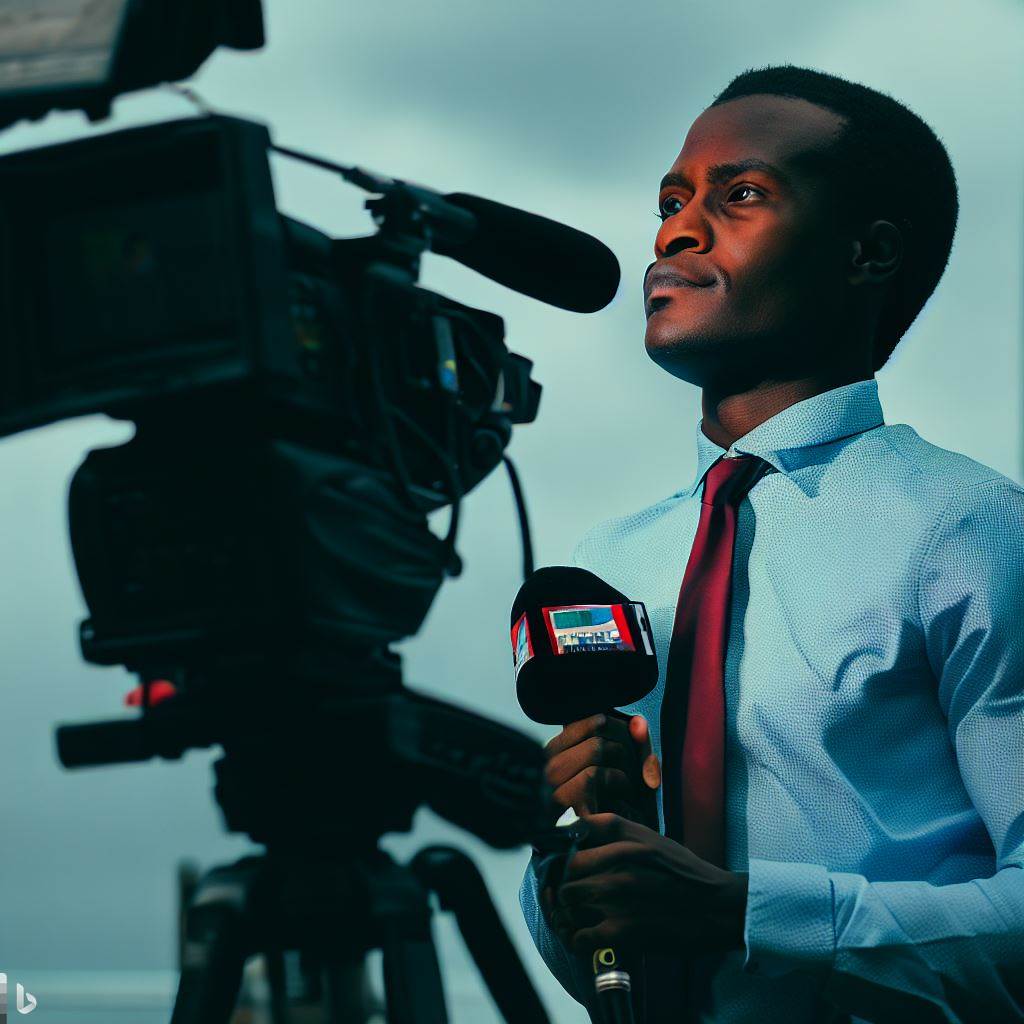Introduction
Television editing is a crucial aspect of the media industry in Nigeria, facing unique challenges.
This blog post aims to explore these challenges and highlight their impact on television production and content quality.
Television editing plays a vital role in shaping the final product that reaches viewers’ screens, ensuring a seamless and engaging experience.
It involves selecting, arranging, and enhancing video footage, audio, and graphics to create a cohesive and visually compelling narrative.
However, television editors in Nigeria encounter various obstacles that hinder their work and creativity.
These challenges include limited resources, time constraints, technical limitations, and the struggle to meet fast-paced deadlines.
With the rapid growth of the Nigerian media industry, television editors face increasing pressure to deliver high-quality content within tight schedules.
They often struggle to strike a balance between meeting production demands and maintaining artistic integrity.
Moreover, the constantly evolving technology presents another set of challenges for television editors.
Keeping up with the latest editing software, staying updated on new techniques, and adapting to ever-changing audience preferences can be daunting.
These challenges ultimately affect the quality of television programming in Nigeria.
Editing limitations can result in subpar visuals, poor storytelling, and a overall mediocre viewer experience.
Basically, this blog post aims to shed light on the challenges faced by television editors in Nigeria.
Understanding these obstacles is crucial to appreciate the efforts and dedication required to produce high-quality content and improve the overall television viewing experience.
Limited Access to Professional Training
Lack of formal education and training opportunities for television editors in Nigeria
Television editors in Nigeria face a significant challenge due to the limited access to formal education and training programs.
Unlike other professions, there is no specific academic curriculum or institutions dedicated to training television editors in the country.
This lack of formal education prevents aspiring editors from acquiring the necessary skills and knowledge required for the job.
Impact on the quality of editing in Nigerian television productions
The lack of professional training opportunities directly affects the quality of editing in Nigerian television productions.
Without proper education and training, editors may lack proficiency in using advanced editing software, understanding industry standards, and implementing effective editing techniques.
As a result, the overall quality of the final product may suffer, leading to subpar television shows and films.
The need for more accessible and affordable training programs
Given the challenges faced by television editors in Nigeria, it is crucial to emphasize the need for more accessible and affordable training programs.
Industry professionals and educational institutions can collaborate to establish dedicated training centers or workshops for achieving this goal.
Aspiring editors can boost their skills and bolster Nigeria’s television industry growth by accessing affordable programs.
Reasons for limited access to professional training for television editors in Nigeria
- Absence of dedicated institutions offering formal education for television editing
- Lack of awareness about the importance of professional training for editors
- Limited funding for training programs in the television industry
Consequences of the lack of professional training for television editors in Nigeria
- Inefficient use of editing software, leading to slower editing processes
- Lack of understanding regarding industry standards and best practices
- Inability to implement creative and effective editing techniques
Possible solutions to improve training opportunities for television editors in Nigeria
- Collaboration between industry professionals and educational institutions to develop training programs
- Creation of dedicated training centers or workshops focused on television editing
- Provision of scholarships or financial assistance for aspiring editors to undergo training programs
Benefits of enhanced training opportunities for television editors in Nigeria
- Improved quality of television productions, resulting in larger audiences and increased industry recognition
- Development of a skilled workforce with expertise in utilizing advanced editing technologies
- Growth of the television industry in Nigeria, leading to economic benefits and job creation.
Read: Ethics and Responsibilities of a TV Producer in Nigeria
Outdated Technology and Software
Challenges arising from the use of outdated editing tools and systems in Nigeria
- Nigeria’s television industry faces numerous challenges due to the use of outdated technology and software in editing processes.
- Outdated editing tools and systems often lack the necessary features and capabilities required for efficient and high-quality editing.
- Without access to modern editing tools, television editors in Nigeria struggle to keep up with international standards and trends in the industry.
- Many editing software and equipment used in Nigeria are no longer supported by manufacturers, making it difficult to find technical support or updates.
- The use of outdated technology hampers the overall quality and competitiveness of Nigerian television productions.
- Editors have limited options for advanced editing techniques and effects, which affects the overall creativity and innovation in the industry.
- Television editors in Nigeria often spend excessive time on manual processes due to the limitations of their outdated tools and systems.
Limitations in terms of efficiency, productivity, and creativity
- Outdated editing tools and systems in Nigeria result in lower efficiency and productivity levels compared to modern standards.
- Modern software could automate repetitive tasks, reducing editors’ time and effort significantly.
- Lack of efficient collaboration features hinders teamwork among editors, leading to slower production processes.
- Outdated systems often have compatibility issues, causing delays and errors when importing and exporting media files.
- Without access to advanced software, Nigerian television editors struggle to meet tight deadlines and deliver high-quality content.
- The limitations of outdated technology and software stifle creativity in television editing, as editors are unable to explore new techniques and styles.
- Nigeria’s television industry falls behind global standards in terms of visual effects, color grading, and other post-production processes.
High cost of upgrading to modern editing software and equipment
- The high cost of upgrading to modern editing software is a major challenge faced by television editors in Nigeria.
- Many editors and production houses cannot afford the high expenses associated with purchasing new software and equipment.
- Even if they can afford it, ongoing costs such as software updates and licensing fees can be burdensome for editors with limited budgets.
- Limited availability of equipment suppliers and distributors in Nigeria can further escalate the costs of upgrading.
- The high cost of upgrading creates a barrier for smaller production houses and independent editors, limiting their access to modern tools.
- Without sufficient funding and access to modern software, Nigerian television editors find it challenging to compete on an international level.
Generally, the challenges arising from the use of outdated technology and software in television editing in Nigeria hinder efficiency, productivity, and creativity in the industry.
The limitations of outdated tools result in lower quality productions, difficulties in meeting deadlines, and inability to explore new editing techniques.
Additionally, the high cost of upgrading to modern software and equipment poses a significant financial burden on editors and production houses.
Addressing these challenges and investing in modern editing tools and systems will be crucial for the growth and competitiveness of Nigeria’s television industry.
Read: The Intersection of Culture and TV Production in Nigeria
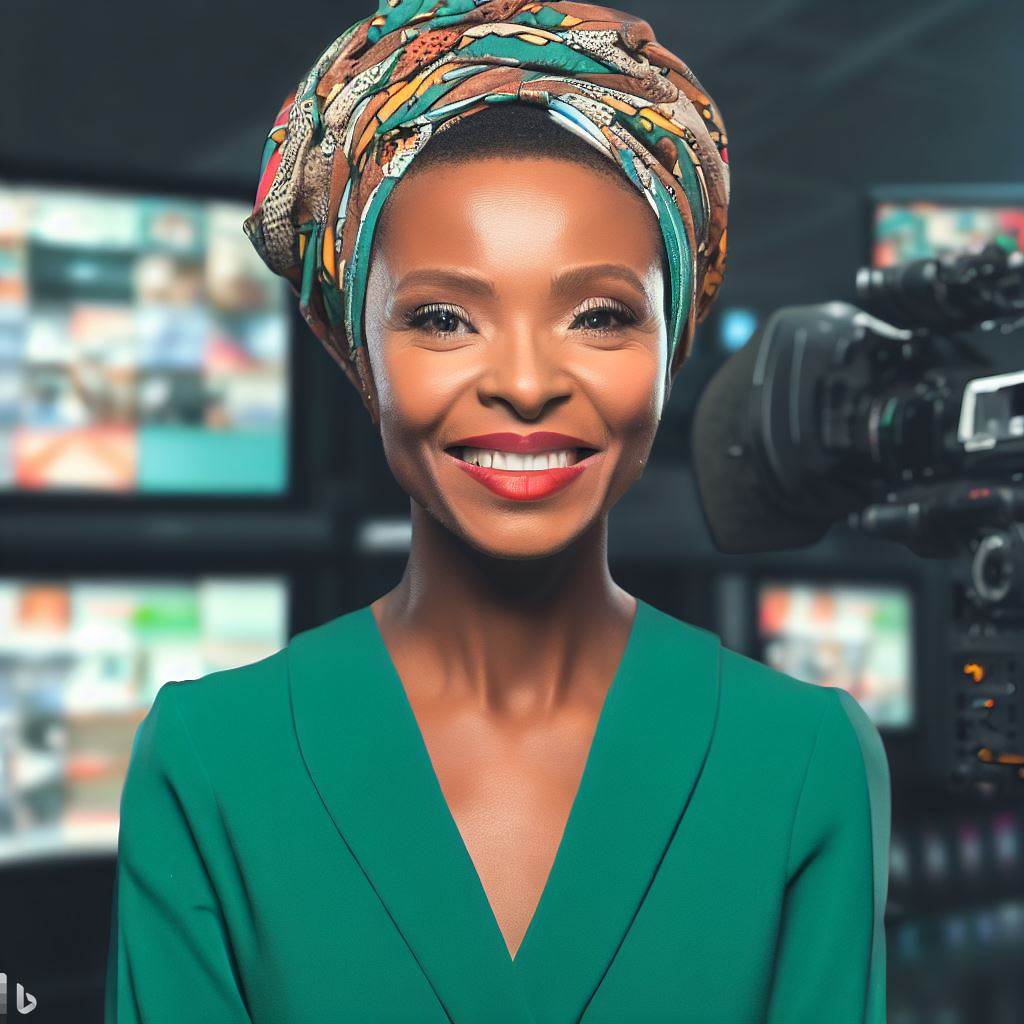
Tight Deadlines and Workloads
Challenges of Tight Deadlines and Workloads
In the fast-paced world of television production, meeting tight deadlines is a constant challenge faced by television editors in Nigeria.
The demanding nature of television production schedules often puts immense pressure on editors to deliver their work quickly.
Television production in Nigeria is characterized by hectic schedules and strict timelines. Projects are usually bound by deadlines that leave little room for delays or errors.
As a result, editors have to work under intense pressure to meet these tight deadlines.
Poor quality of final product
The pressure to deliver work quickly can have a negative impact on the overall quality of editing.
When editors are rushed, they may not have sufficient time to pay attention to detail or properly refine their work.
This can lead to mistakes, inconsistencies, and a lack of polish in the final product.
Negative effect on mental and physical well-being
Additionally, tight deadlines and heavy workloads can take a toll on the mental and physical well-being of television editors.
The constant pressure to meet deadlines can lead to stress, burnout, and fatigue.
This, in turn, can further hamper the editor’s ability to deliver high-quality work.
Disruption of work-life balance
Furthermore, the demanding nature of television production schedules may result in editors having to work long hours, including weekends and holidays.
This can disrupt their work-life balance and affect their personal relationships and overall job satisfaction.
It is essential for television production companies in Nigeria to recognize the challenges posed by tight deadlines and heavy workloads on editors.
Measures should be put in place to ensure that editors have sufficient time and resources to produce high-quality work.
How to address the issue of Deadlines and Workloads
Have realistic production schedules
One way to address this issue is to establish realistic production schedules.
Adequate time should be allocated for each stage of the editing process, allowing editors to thoroughly review and refine their work.
This can help minimize errors and improve the overall quality of editing.
Streamline workflows and improve efficiency
Another approach is to streamline workflows and improve efficiency.
By optimizing the editing process, unnecessary delays and bottlenecks can be avoided, reducing the pressure on editors to rush their work.
This can be achieved through the use of advanced editing software, collaboration tools, and effective communication among the production team.
Prioritize the well-being of their editors
Additionally, television production companies should prioritize the well-being of their editors.
Providing a supportive work environment, offering breaks and time off, and implementing policies to prevent excessive work hours can help alleviate the stress and fatigue experienced by editors.
In essence, tight deadlines and heavy workloads are major challenges faced by television editors in Nigeria.
The demanding nature of television production schedules puts pressure on editors to deliver their work quickly, often compromising the overall quality of editing.
It is crucial for television production companies to address these challenges by establishing realistic schedules, streamlining workflows, and prioritizing the well-being of their editors.
Read: Demystifying the Role of a Television Producer in Nigeria
Lack of Collaboration and Communication
Television editing is a complex process that requires effective collaboration and communication among editors, directors, and producers.
However, in Nigeria, there is a significant communication gap that hinders the smooth flow of work.
This article aims to discuss the challenges faced due to this divide, the impact it has on the editing process and final product, and suggests strategies for improving collaboration and communication within the production team.
The Communication Gap
One of the main challenges faced by television editors in Nigeria is the lack of communication and collaboration between editors, directors, and producers.
Often, these different professionals work in isolation, making it difficult for them to understand each other’s vision and requirements.
This causes a disconnect and leads to delays and misunderstandings during the editing process.
Editors require clear instructions from the directors and producers to accurately portray their creative vision.
However, due to the limited interaction between them, editors often struggle to decipher the intended message.
This can result in the wrong editing decisions being made, further widening the communication gap.
Impact on the Editing Process and Final Product
The limited collaboration and communication among the production team have a significant impact on the editing process and the final product.
Without proper communication, editors cannot fully understand the desired style, tone, and pacing of the television show or film.
This leads to a disjointed narrative and an unsatisfactory final product that does not align with the original vision.
Furthermore, the lack of collaboration can also result in repeated re-edits, wasting both time and resources.
Directors and producers, when unclear in their expectations, force editors into making interpretive decisions, causing inefficient workflows and multiple revisions.
Strategies for Improving Collaboration and Communication
To overcome the challenges posed by the communication gap, there are several strategies that can be implemented by production teams in Nigeria:
- Regular Meetings: Organize regular meetings where directors, producers, and editors can discuss their vision, ideas, and concerns.
- Clear Communication Channels: Establish a centralized communication channel where the team can share project updates, feedback, and notes.
- Collaborative Editing Software: Invest in editing software that allows multiple team members to work on the same project simultaneously, encouraging real-time collaboration.
- Storyboarding: Implement a storyboard process that helps directors and editors align their creative vision, minimizing misinterpretations during the editing stage.
- Constructive Feedback: Encourage open and constructive feedback among team members to foster a collaborative environment and improve communication.
- Training and Workshops: Arrange training sessions and workshops for editors, directors, and producers to enhance their understanding of each other’s roles and responsibilities.
By implementing these strategies, the production team in Nigeria can bridge the communication gap, improving collaboration and enhancing the overall quality of the final product.
In a nutshell, the lack of collaboration and communication among television editors, directors, and producers in Nigeria pose significant challenges.
This gap hampers the editing process and leads to unsatisfactory final products.
However, by adopting the suggested strategies, the production team can overcome these challenges and create exceptional television shows and films that resonate with the audience.
Read: How to Succeed as a Television Producer in Nigeria
Limited Creative Freedom
Challenges in Nigerian television editing frequently restrict editors’ creativity, affecting program quality and artistic integrity.
Producers and broadcasters limit editors’ creativity, and commercial interests sway their editing decisions, primarily causing these challenges.
Constraints on Editors’ Creativity
- Strict adherence to producers’ vision: Television editors in Nigeria are often required to strictly adhere to the producers’ vision for a program, leaving limited room for creative inputs.
- Tight deadlines: Editors are often faced with tight deadlines, leaving them with little time for experimentation or exploring innovative editing techniques.
- Production limitations: Limited budgets and resources can hamper editors’ ability to fully utilize their creative skills, leading to compromised editing quality.
- Content censorship: Editors must adhere to strict content censorship guidelines imposed by producers, broadcasters, and regulatory bodies, limiting their creative expression.
- Format and genre restrictions: Editors often have to conform to specific format and genre requirements, limiting their ability to experiment and explore different editing styles.
Influence of Commercial Interests
- Advertisement placements: Commercial interests often dictate the placement and duration of advertisements within television programs, affecting the flow and pacing of the editing process.
- Product placements: Editors may be instructed to include specific product placements within the program to promote commercial interests, affecting the narrative and artistic integrity.
- Sponsorship influence: Producers and broadcasters may prioritize the interests of sponsors, leading to editing decisions that favor their products or services over creative storytelling.
- Viewership ratings: Editors are often pressured to make editing decisions based on viewership ratings, compromising artistic integrity to cater to popular demands.
- Revenue generation: Commercial interests heavily influence editing decisions to ensure maximum revenue generation, sometimes compromising the overall quality of the program.
Impact on Quality and Artistic Integrity
The constraints placed on television editors’ creativity and the influence of commercial interests ultimately impact the quality and artistic integrity of television programs in Nigeria.
- Homogeneity of content: Due to limited creative freedom, television programs may lack diversity, resulting in repetitive and formulaic content.
- Loss of originality: The influence of commercial interests may lead to the replication of successful international formats, resulting in a loss of originality.
- Artistic compromise: Strict adherence to producers’ vision and commercial interests may force editors to compromise on artistic choices, diluting the overall artistic integrity of the program.
- Reduced innovation: Limited time, resources, and experimentation opportunities hinder the potential for innovative editing techniques and new storytelling approaches.
- Decreased audience engagement: The impact of commercial interests may result in excessive product placements or intrusive advertisements, leading to decreased audience engagement and viewer fatigue.
Producers and broadcasters limiting creative freedom and commercial interests influencing decisions significantly impact Nigeria’s TV program quality.
Addressing these challenges could lead to more diverse, innovative, and engaging television content in Nigeria.
Conclusion
Television editors in Nigeria face numerous challenges that hinder their work and the growth of the media industry.
These challenges include limited access to modern editing tools, inadequate training and skills development, insufficient funding, and pressure to meet tight deadlines.
Addressing these challenges is crucial for the growth and development of the media industry in Nigeria.
By providing television editors with modern editing tools and resources, enhancing their skills through training programs, and allocating sufficient funding, the quality of television content can improve significantly.
Furthermore, addressing these challenges will also lead to the emergence of more skilled and competent television editors, thereby enhancing the overall professionalism and credibility of the media industry in Nigeria.
To achieve this, it is essential for stakeholders to step forward and support the development of Nigerian television editing.
Government agencies, media organizations, and private investors should invest in the modernization of editing facilities, provide adequate training programs, and allocate sufficient funds for the industry’s growth.
Publish Your Professional Profile, Business or Brand
Showcase your expertise, gain trust, and boost visibility instantly on Professions.ng.
Publish NowBy doing so, stakeholders will contribute to the advancement of Nigerian television editing, leading to the production of high-quality content that meets international standards.
This, in turn, will attract more viewers and advertisers, boosting the revenue and viability of the media industry in Nigeria.
All in all, Nigerian television editors face significant challenges, but addressing these challenges is of utmost importance for the growth and development of the media industry.
It is vital for all stakeholders to actively support and invest in the development of Nigerian television editing to ensure a vibrant and successful future for the industry.

